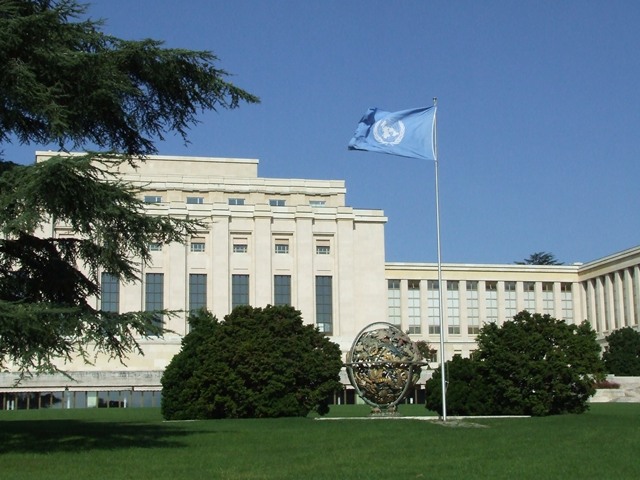
UNECE Backs Ukraine’s Green Urban Energy Recovery
Since Russia’s full-scale invasion of Ukraine, the country’s energy infrastructure has suffered approximately $20 billion in damage, causing widespread power outages and insufficient heat supply – with the cities of Kharkiv and Mykolaiv alone accounting for over $630 million in losses, according to UNDP.
While emergency efforts have focused on rebuilding existing capacity and fossil fuel capacity replacements, this approach can overlook the need for more resilient and sustainable local energy solutions. In addition to the need to rebuild energy infrastructure and meet ambitious 2030 renewable energy targets in place in national energy and climate laws, Ukraine aims to move to a system that balances centralized and decentralized systems, across heat, electricity and energy demand.
In this context, Ukrainian cities will play an important role in the country’s sustainable and resilient reconstruction that is aligned with the energy transition, as well as with European standards and regulations.
Meeting with Ukraine’s Ambassador to the United Nations and other International Organizations in Geneva, H.E. Yevhenii Tsymbaliuk, UNECE Executive Secretary Tatiana Molcean reiterated UNECE’s steadfast commitment to help the government address these issues, building on strong cooperation on urban development and energy policy. Looking ahead to the Ukraine Recovery Conference to be held in Rome in July, she underscored solidarity and ongoing support for Ukraine’s sustainable and resilient recovery across UNECE’s areas of expertise.
Local action for Ukraine’s green energy recovery
Support to urban reconstruction planning has been a core dimension of UNECE’s support to Ukraine’s recovery since the start of the war. Through the UN4UkrainianCities initiative, UNECE has mobilized international partners to support the development of concept master plans and pilot projects in the cities of Kharkiv and Mykolaiv, and has supported the government to draft new housing legislation, including the State Housing Policy Strategy, as well as to strengthen capacities for the Urban Planning Cadastre.
To this end, UNECE, the United Nations Environment Programme (UNEP), and the Autonomous Region of Bolzano in Italy jointly organized an international study trip to strengthen the capacities of the cities of Kharkiv and Mykolaiv, among other 2 municipalities, for integrated urban energy planning focused on decentralized and renewable local energy and modern district heating systems.
This study visit is facilitated by the UNEP programme “Unlocking greener and more resilient energy in Ukrainian cities”, supported by the Italian Development Co-operation (AICS), and by UNECE’s UN4UkrainianCities initiative. Additional support to the study visit is provided by the NOI Technopark in Bolzano, Alperia (Bolzano, Italy), and EURAC Research.
Officials from Kharkiv and Mykolaiv will benefit from the guidance of international experts, and site visits to state-of-the-art local, renewable and decentralized energy installations.
Mobilizing partnerships meet financing needs on the ground
At the Hamburg Sustainability Conference this week, the City Council of Bucha, home to 73,000 people and located 30km from Kyiv, presented a project for the construction of a decentralised city energy system. Supported by UNECE, this provided an opportunity to present the project seeking €145 million from potential investors and financiers in staged investment through Public-Private Partnerships.
Developed in response to energy capacity losses during the war, the distributed energy system aims to provide a reliable uninterruptible power supply of over 112 MW through a clean, flexible and autonomous system comprising generation facilities and grid connection infrastructure. This would include power plants for households and critical infrastructure, power for the city’s industrial cluster, and energy storage systems. The project would in addition create an estimated 120 jobs.
Continued support for sustainable recovery
In Geneva, the Executive Secretary also recalled UNECE’s broader, multisectoral support to the government of Ukraine in implementing the National Recovery Plan, including through: the PIERS methodology to assess sustainability of infrastructure projects, facilitating Public-Private Partnerships and other investment; the Platform for Action on the Green Recovery of Ukraine; the Inter-agency Coordination Group on Environmental Assessments for Ukraine; harnessing Innovation for Sustainable Development; support for water-related and other environmental challenges, leveraging UNECE Multilateral Environmental Agreements; and applying the UN Framework Classification for Resources (UNFC) to support the sustainable management of Ukraine’s critical raw materials.
https://unece.org/media/press/403005

